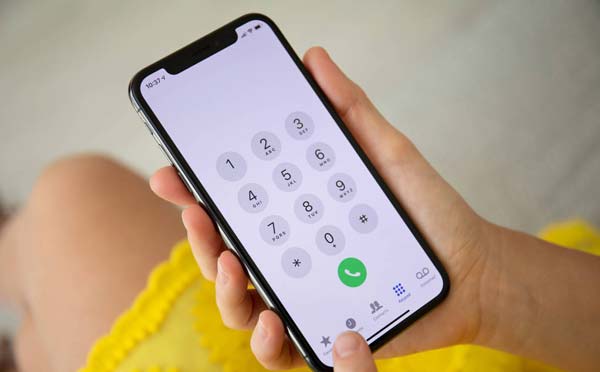

Do you mind letting your partner check your phone, the essence behind this is actually to love someone, and you must be 100% honest?
I have a friend who complained to me because his girlfriend wanted to check his phone: "I told my girlfriend when I was with her, I value privacy, I will not look at her phone, I hope she respects me Don't check my phone. If I show it to her, I feel that my privacy has been violated, but if I don't show it to her, she thinks I'm not honest enough. Now we're deadlocked, I really don't know What should I do?"
This friend's distress is not uncommon. Sometimes, in an intimate relationship, one partner's need for candor can conflict with the other's need for privacy.
Today, let's talk about it. If you really love someone, do you have to be completely honest? How to balance honesty and privacy in intimate relationships?
The answer is not necessarily.
There is no denying that honesty is essential in intimate relationships. In the early stages of entering an intimate relationship, honesty can enhance mutual understanding between the two parties and also promote trust in the relationship. However, honesty is not the same as sincerity. A person can be completely frank, maybe because he doesn't care about other people's feelings, just to meet his own needs to talk about these things, he doesn't care whether his frankness is beneficial to the feelings and interests of the other party.

For example, when a woman finds his ex-girlfriend's phone number in her boyfriend's mobile phone and questions him, the boy can honestly say that he just doesn't think it is necessary to delete it, so he keeps it. He was completely honest, but he didn't consider the feelings of the other party, which would lead to his honesty being cruel and inconsiderate, making it difficult for girls to experience intimacy.

In an intimate relationship, if a person shows too radical honesty without considering or caring about his partner's feelings, the receiver of the message will feel that the other party is inconsiderate, intimacy, and even callous.
Although honesty is not necessarily a sign of loving someone, some people still need their partner's honesty to prove their love for themselves. At the same time, it is often difficult for them to accept their partner's refusal to be honest on the grounds of privacy. For example, when it comes to looking at their mobile phones, many people will ask, if there is nothing, why can't they look at their mobile phones?
They believe that if their partner tries to prevent them from looking at his phone and reacts abnormally, then he is not maintaining his so-called privacy, but has something to hide from them. Some people are afraid that their secrets will be exposed, and use privacy as an excuse. People will inevitably equate privacy with secrets. To be clear, privacy is not the same as secrecy. Secrets can damage trust in relationships and hinder intimacy, but privacy does not; on the contrary, privacy can promote connection between people.
Psychologists who study privacy define privacy as a boundary-controlling process in which individuals decide autonomously with whom, how much, and the types of contacts. To correctly understand privacy, it is necessary to emphasize the two elements of "individual self-determination" and "border control" in the definition. If he is unwilling, then he has the right to refuse and maintain his privacy, which is equal to the other party's right to check the phone.
"Boundary control" includes sometimes restricting the other person's approach to oneself, and sometimes encouraging the other person to approach oneself, so as to achieve the ideal degree of approaching oneself by others at a specific time and in a specific environment. When others interact with us too much, we feel our boundaries are violated, and when we interact too little, we feel alone and alienated. Privacy is about adjusting the degree of interaction with others to achieve the most comfortable state for yourself.
Psychologists believe that the need for privacy is closely related to the ability to be alone in infancy and toddlerhood. When a child internalizes the capacity for attachment and separation, is able to play alone in the absence of his mother, and has a private space and thought, he develops his true self.
Even as adults, we still need varying degrees of privacy in intimate relationships to develop and maintain a sense of self. We want to remain separate in some ways, but at the same time integrated in other ways. For example, someone wants to maintain their financial privacy, but is willing to share their friendship and social circle with their partner. Therefore, privacy does not mean isolation, isolation or denial. A person's need for privacy in an intimate relationship, but still wanting to be close to their partner, are not in conflict.
Studies have found that when people's privacy is violated, they feel violated and feel that something important has been taken away.